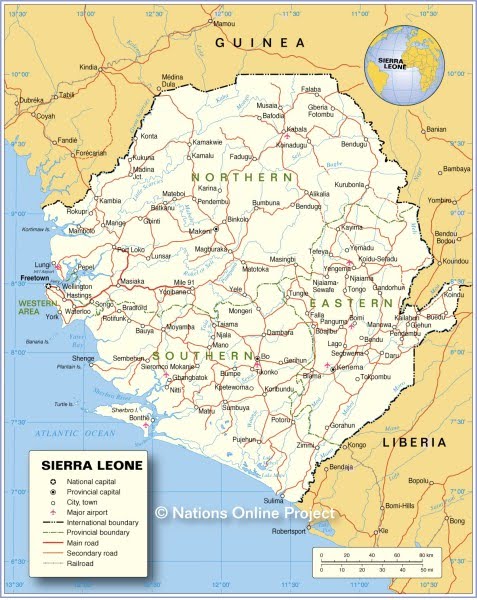
In the dry season living, working and leisure in Freetown is as far as is possible an open air activity. So if you’re cooking, washing, selling or buying, plaiting hair or just sitting listening to the radio, you try and do it out of doors. Likewise with travel, be it in a poda poda mini-bus or a taxi you ensure that all windows are open. The vehicle may not have a suspension worthy of the name, or tyres with visible tread but a full sound system is a requirement of both forms of transport. So as we approached Christmas, the reggae, rap and bee bop rhythms invariably include the words of carols or well known songs and the occupants unite in a sing along journey that can heard by all those who are stuck in traffic or walking by.
To date all services of Methodist worship have been inside buildings, where the multifarious sounds of the adjacent street are an ever-present accompaniment to the liturgy. In the order of service, which is occasionally printed the presence of shouts and the development of Singspiration is apparently a recent phenomena. Shouts are repetitive choruses which are introduced by worship leaders. So following the formal act of confessional prayers which are recited from memory, the congregation is invited to stand. Then, with the support of competent drummers and even more skilled organists and pianists, there follows a melody of shouts that evokes, rhythmic clapping and in pew dancing from young, very young and the not so young. The infectious delight of the congregation is clearly evident, even if it is difficult to determine the words which may be in Krio, Mende or English. Then after a period of ten to fifteen minutes, the attentive ear of the congregation receive the cue that the singspiration is coming to a close, as the worship leader guides the congregation into a pattern of silence, followed by open prayer.
Charismatic, independent churches has influenced the introduction of Singspiration, which many people, among them life-long committed Methodists, have been hoping to see present in their own churches, which were regarded by outsiders as being spirit-less, cold and overly traditional. For many people, worship in the Independent, Charismatic and Pentecostal churches fed their souls in a manner not found in Methodist or Anglican worship.
Methodist minister Dr Leslie Shyllon, wrote that whilst the churches in Salone had “endeavoured to Africanise their ministry and organization (and to a large extent succeeded) but they have failed to Africanize either the liturgy and forms of worship or the theology of the church.” * Just as we were preparing to meet him, as a colleague whose long teaching ministry had taken him into retirement, we received news that he had died shortly after being admitted to a local hospital. Dr Shillon identifies that on arriving in Freetown from the Provinces, adherents of indigenous religions have found a proliferation of mosques and churches, but also a Christianity that is inaccessible to both their academic and emotional sensibilities. His analysis of the historical African churches concludes that the needs of the followers of Indigenous Traditional Religion (many of whom are illiterate) require a greater consideration than is currently been given.
Being an atheist, an agnostic or being indifferent to religion is not an option that many people find desirable in Freetown, or if they do, would not want to shout about it!
*“Two Centuries of Christianity in an African Province of Freedom” L.E.T.Shyllon 2008
For additional photos please see the following:
http://picasaweb.google.com/clark.janice/WelcomeToSalone






